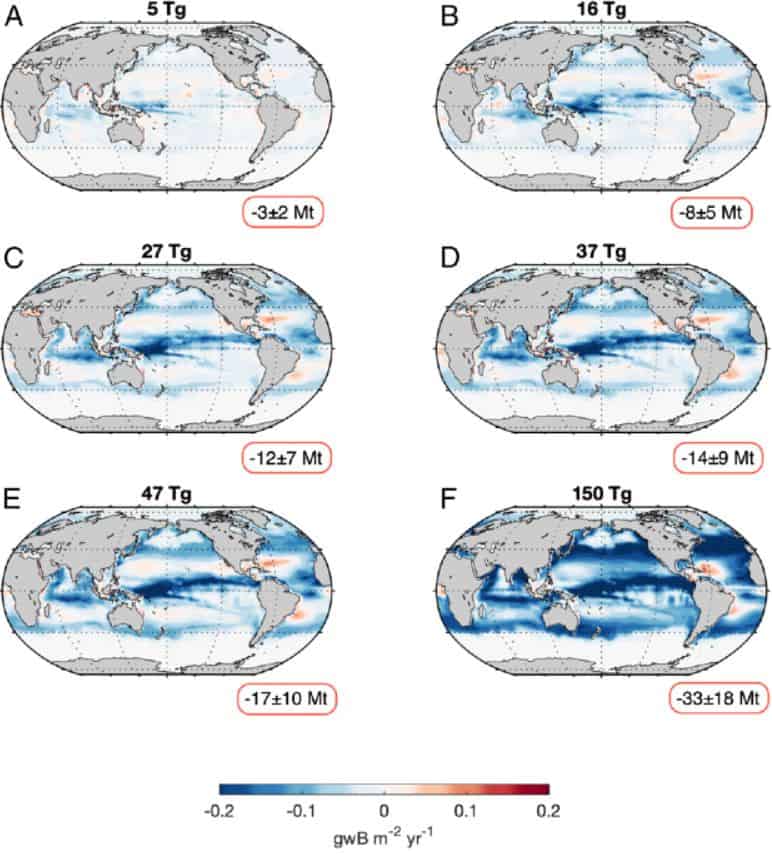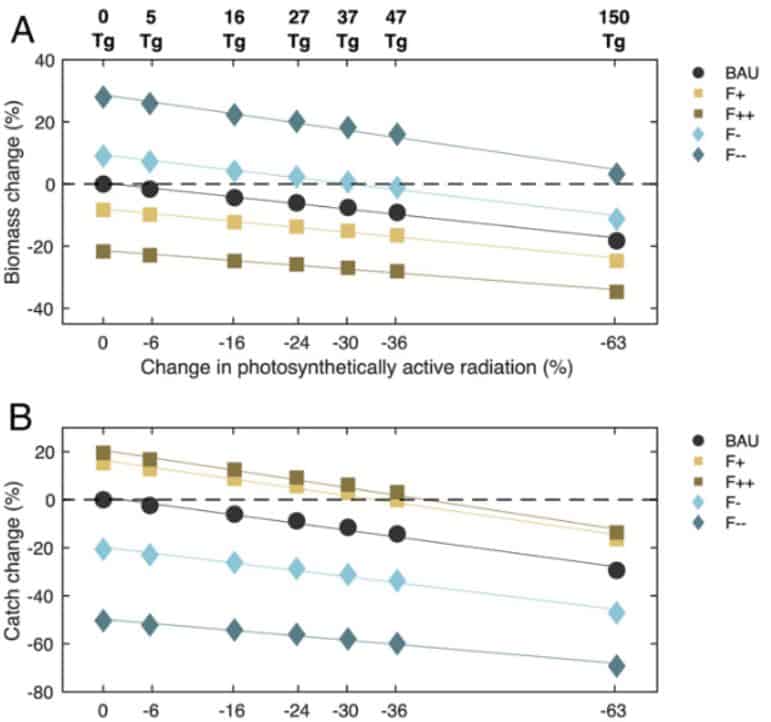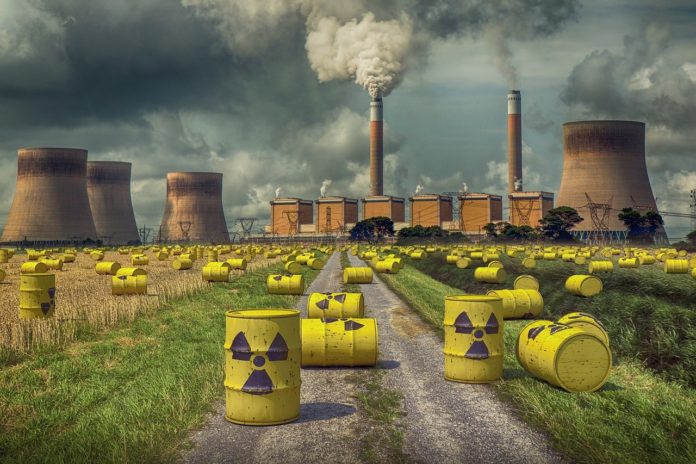In the event of a nuclear war between Russia and the United States, about 150 million tons of soot will enter the atmosphere, which will lead to a cooling of the climate and a decrease in the catch of fish and seafood in the world by 29 ± 7 per cent. Even in the case of less destructive local nuclear conflicts (between India and Pakistan), after a short-term intensification of the fishing industry, there will be a critical decline in both ocean biomass and potential catch. The ocean will only be able to feed humanity in the most difficult first two years after a nuclear war if the modernization of the management of marine biological resources begins now: they are now seriously depleted by overfishing in key fishing zones.
At present, nuclear weapons continue to pose a potential threat to humanity. Its arsenals are growing in India, Pakistan and North Korea, in addition to those already supported in the United States, Russia, China, France, Britain and Israel. It is known that in the event of a nuclear war, a large amount of soot particles from fires will enter the Earth’s atmosphere, and this will lead to a decrease in the amount of sunlight and an extensive cooling on the planet – the so-called nuclear winter.
Climate change is expected to hit agriculture: amid a cold snap, crops will decline and an acute food shortage will begin worldwide. According to the estimates of scientists, even the local nuclear conflict between India and Pakistan with one per cent of their nuclear arsenals would lead to the release of five million tons of soot into the atmosphere and reducing food production in the world by 11 per cent in five years. At the same time, the possible consequences of nuclear war for marine ecosystems, which are currently the main source of protein for the diet of three billion people, have not yet been studied.
Scientists led by Kim J. N. Scherrer of the Autonomous University of Barcelona have found out whether the biological resources of the oceans can feed humanity in the event of nuclear war and the decline of classical agriculture. To do this, they conducted mathematical modeling using six possible scenarios of a nuclear war: five variants of a regional conflict between India and Pakistan of varying degrees of intensity with emissions from five to 47 million tons of soot into the atmosphere, as well as one variant of a nuclear war between the United States and Russia with an emission of 150 million tons of soot into the atmosphere.

The authors of the study described the possible response of the economy to the consequences of a nuclear war in five gradations: BAU (business-as-usual – without tangible consequences due to the war), F + (decline in agriculture and a small increase in the catch), F ++ (more tangible decline in agriculture and significant catch increment, F- (fuel shortage, infrastructure destruction and threat to public safety) and F- (critical fuel shortage, infrastructure destruction and public safety threat) The authors of the study took the current and potential values of fishing parameters in the BOATS model.

It turned out that the flow of one million tons of soot into the atmosphere will be accompanied by a reduction in catch by two percent, and the biomass of seafood – by one percent. In the event of a nuclear war between Russia and the United States, with 150 million tons of soot entering the atmosphere, the world catch of fish and seafood will decrease by 29 ± 7 percent. Scenarios of a local nuclear conflict between India and Pakistan (without a fuel shortage and destruction of infrastructure around the world) will lead to a temporary increase in the catch (by a maximum of 30 percent), but only due to its intensification. This situation will last no more than two years, followed by a decline (to more than 70 percent) of the biomass in the ocean due to overfishing.
The authors of the study noted that the biological resources of the oceans can become a short-term (about two years), but a vital buffer for food security and save humanity from hunger in the most difficult first years after the war. Moreover, they are able to replace up to 43 ± 35 percent of the current animal protein in the diet. However, this will only be possible if fisheries management is immediately optimized: the negative responses of biomass and fishing efficiency calculated by scientists in the event of war are primarily due to the current state of marine biological resources, which are depleted by overfishing in key fishing areas.
The inefficiency of the current management of the sea’s biological resources is clearly evident in the example of the situation in the Pacific: in 2017-2018 alone, at least 900 Chinese vessels carried out illegal fishing off the coast of North Korea, which led to the local depletion of the Pacific squid population Todarodes pacificus. As a result, at least 3,000 North Korean vessels set off to take the sea delicacy to Russian territorial waters without obtaining a fishing permit.
